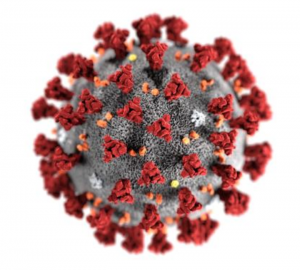By NewsDesk @infectiousdiseasenews
The Brazil Ministry of Health registered 15,305 new COVID-19 cases and 824 new deaths in the past 24 hours, bringing the total of 218,223 cases for coronavirus and 14,817 deaths.

The report of this rise in cases came as Brazil’s health minister, Nelson Teich resigned his position after less than a month on the job.
At a news conference, Teich did not say why he had stepped down. He just thanked President Jair Bolsonaro for giving him the chance to serve as a minister and praised healthcare workers.
On his Twitter page, Teich wrote: Life is made of choices and at that moment I choose to leave. I thank everyone who was with me on this path. The health mission is always tripartite: Ministry of Health, States (CONASS) and Municipalities (CONASEMS)
I started visiting the MS in the cities most affected by Covid-19, which showed us that the right way to understand the disease is to be on the front line, together with health professionals, who struggle daily to save and help their patients.
I did not accept the invitation for the position, I accepted for Brazil and mainly for all Brazilians
Lastly, the Ministry of Health is funding the study ‘Evolution of the Prevalence of Infection by COVID-19’, coordinated by the Center for Epidemiological Research at the Federal University of Pelotas, which will analyze the evolution of cases of COVID-19 in the Brazilian population. In all, 99,750 people from 133 municipalities in all regions of the country will undergo a rapid test (serology), which detects whether the person has already had the disease. 150 thousand rapid tests were sent to make the action feasible.
The idea is to identify how the virus is spreading throughout Brazil and to create more efficient public policies on the behavior of the coronavirus in the Brazilian territory. These “sentinel cities” were chosen because they are the host cities of each intermediate sub-region of the country, according to criteria of the Brazilian Institute of Geography and Statistics (IBGE).
The research will be carried out in three phases, with interviews that will take place every two weeks through home visits, conducted by teams from the Brazilian Institute of Public Opinion and Statistics (IBOPE). The first phase started on May 14 and will continue until May 17, with interviews and rapid tests scheduled for 33,250 participants (250 in each of the 133 cities).
The State Health Secretariats received an official letter from the Ministry of Health on the conduct of the research. The notification was also sent to the National Council of Health Secretaries (Conass) and the National Council of Municipal Health Secretariats (Conasems). The next stages of the research are scheduled to take place on May 28th and 29th, and June 11th and 12th.
During the survey, people are interviewed and tested at home, by random drawing. If the test result is positive, the professionals deliver information with guidance and forward the participant’s contact to the Health Surveillance Secretariat of the Ministry of Health, which will be responsible for informing the local health departments for monitoring and supporting cases by the services Cheers.
The data collected will serve as a basis for estimating the percentage of infected Brazilians, assessing the most commonly reported symptoms, estimating hospital resources needed to face the pandemic and allowing the design of strategies to mitigate social isolation measures.

